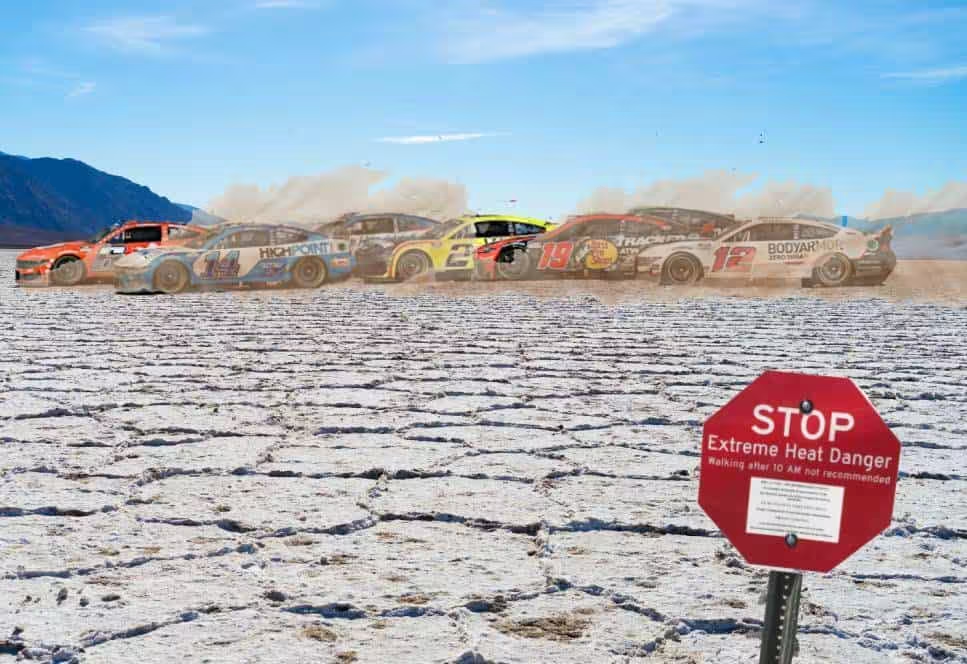1. Should NASCAR Race in Death Valley to End Its Drought?
If you build it, they will come.
And if NASCAR builds it, rain will come.
In all seriousness, it has been a month of comedically awful luck for NASCAR and NBC, as the last three NASCAR Cup Series races and the last four weekends have all seen lengthy delays due to weather
The Chicago Street Race last Sunday (July 7) failed to reach the scheduled distance for the second consecutive year, as only 58 of the 75 laps were completed by the time NASCAR pulled the plug at approximately 8:20 p.m. local time due to impending darkness.
No matter where NASCAR goes, those clouds of doom, gloom and precipitation always seem to follow. And the while the forecast for this weekend’s races at Pocono Raceway isn’t absolutely dire, the series and its fans will be on rain watch yet again.
This weekend looks to have the clearest weather (knock on wood), as the current forecast from The Weather Channel predicts just a 15% chance of rain on Sunday for Long Pond, Pa.
On the other hand, Friday (July 12) currently has a 61% chance of rain concentrated in the evening, which may interfere with running the NASCAR Craftsman Truck Series race that is scheduled to start at 5:30 p.m. ET. Saturday (July 13) then shows a 56% chance of rain, and while most of the storms are predicted to pass by in the morning (leaving the afternoon relatively clear for the NASCAR Xfinity Series race), the storms will likely throw a wrench into Xfinity and Cup practice/qualifying.
If it wasn’t the middle of July with scorching heat (Las Vegas set an all-time record of 120 degrees Fahrenheit on July 7, while Death Valley has had temperatures flirting with 130 all week), it would be really nice to have a race weekend in the desert without any threats of rain. But knowing NASCAR’s current luck, we’ll probably get rain showers there as well.
2. Could NASCAR experiment with a timed race?
In a change from past protocol, NASCAR amended a rule concerning races threatened by darkness after the Cup Series just barely beat sunset in the rain-delayed event at New Hampshire Motor Speedway.
Those changes were experienced firsthand in Chicago, where NASCAR gave a set time (8:20 p.m. CT) when the white flag would be waved due to darkness, regardless of how many laps were left in the race.
It created unique strategy in the closing laps as the teams had to race the clock and not the lap count for one of the first…
Click Here to Read the Full Original Article at …

